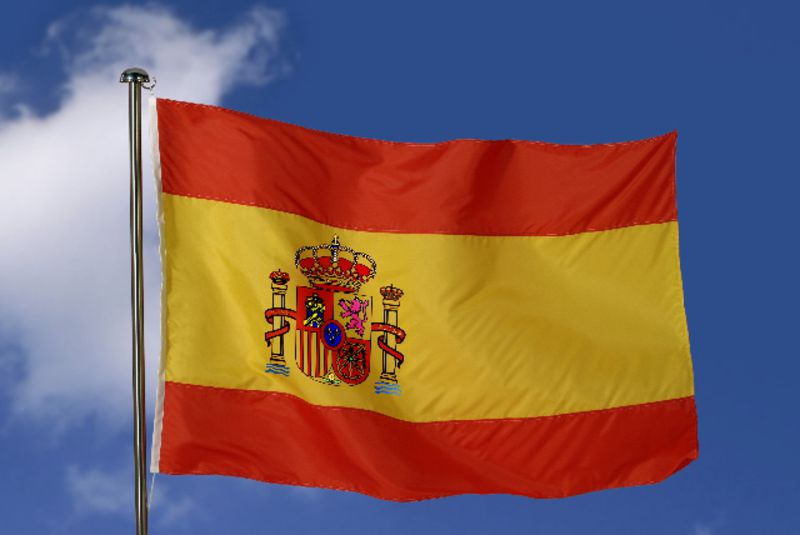Isn't it better that we have a single "northern" currency?
Adelina Marini, September 10, 2010
 According to some European economists, the Old Continent's division no longer is on the axis from the Cold War - East vs. West but South vs. North. The analyses and also bare eye observations show that Northern economies are more resilient to crises, more competitive and with higher productivity than the Southern. Besides, the north countries in general have an increased interest in innovations and development of Information and Communication Technologies (ICT).
According to some European economists, the Old Continent's division no longer is on the axis from the Cold War - East vs. West but South vs. North. The analyses and also bare eye observations show that Northern economies are more resilient to crises, more competitive and with higher productivity than the Southern. Besides, the north countries in general have an increased interest in innovations and development of Information and Communication Technologies (ICT).
The columnist for the Washington Post Anne Applebaum has reached to the  same conclusion - she makes the same division but not based upon geographical lines, rather economical. In an article, entitled "In Europe, it's no longer East vs. West", she tells a story of a group of Estonians and a Pole who were sitting in a Greek tavern. They shared anecdotes about the good life the Greeks lead, about their free time, while the Germans pay for it. And also anecdotes, well known in Bulgaria too that are not quite anecdotes, about how prices are been determined on the Greek property market. "... all houses have two prices: the "official" price and the "real" price. You pay taxes on the official price. You pay the owner the real price. Everybody knows about this, and everybody winks -- including the tax office".
same conclusion - she makes the same division but not based upon geographical lines, rather economical. In an article, entitled "In Europe, it's no longer East vs. West", she tells a story of a group of Estonians and a Pole who were sitting in a Greek tavern. They shared anecdotes about the good life the Greeks lead, about their free time, while the Germans pay for it. And also anecdotes, well known in Bulgaria too that are not quite anecdotes, about how prices are been determined on the Greek property market. "... all houses have two prices: the "official" price and the "real" price. You pay taxes on the official price. You pay the owner the real price. Everybody knows about this, and everybody winks -- including the tax office".
 It seems, according to the conversation in the group, that the same situation was in Estonia and Poland but .... 20 years ago - when Europe was still divided into Western and Eastern. But more and more valid the devision between North and South becomes, Ms Applebaum points out. "Not everybody is going to like that concept, especially not the new South, some of whose members are not necessarily in the southern half of the continent. For these are not geographical designations but, rather, political terms of art. The South contains all of those countries whose political classes have not been able to balance their national budgets, whose bureaucrats have not been able to reduce their numbers, whose voters have not learned to approve of austerity: Greece, Spain, Portugal, Italy, Hungary, Bulgaria and, at the moment, Ireland".
It seems, according to the conversation in the group, that the same situation was in Estonia and Poland but .... 20 years ago - when Europe was still divided into Western and Eastern. But more and more valid the devision between North and South becomes, Ms Applebaum points out. "Not everybody is going to like that concept, especially not the new South, some of whose members are not necessarily in the southern half of the continent. For these are not geographical designations but, rather, political terms of art. The South contains all of those countries whose political classes have not been able to balance their national budgets, whose bureaucrats have not been able to reduce their numbers, whose voters have not learned to approve of austerity: Greece, Spain, Portugal, Italy, Hungary, Bulgaria and, at the moment, Ireland".
The North contains the budget hawks: Germany, Poland, Estonia, Scandinavia,  the Czechs and the Slovaks. Britain's new government, with its new austerity budget, aims to return to the North, following its recent experience of life in the South. France floats somewhere in between. ""Wealth," as such, isn't Northern: Much of the South is very rich. But in the North, private wealth has grown more or less in tandem with the public sector. Private wealth and public squalor are more typical of the South", the columnist of the Washington Post goes on.
the Czechs and the Slovaks. Britain's new government, with its new austerity budget, aims to return to the North, following its recent experience of life in the South. France floats somewhere in between. ""Wealth," as such, isn't Northern: Much of the South is very rich. But in the North, private wealth has grown more or less in tandem with the public sector. Private wealth and public squalor are more typical of the South", the columnist of the Washington Post goes on.
She makes another very important clarification, which emerged clearly after the Greek crisis in the beginning of the year - that currently the new Northern Europe is not the same thing as the eurozone: not all of its members use the common European currency. "Clearly, this is illogical: The increasingly similar, deeply connected and ever-converging economies of the North maintain different currencies. On the other hand, Germany, France, Italy and Greece -- countries that have radically different attitudes about public spending and budgets -- are bound into the same currency zone. Wouldn't it make sense to drop the euro in favor of a "Northern" currency", Ms Applebaum asks. "How long can it be before that begins to seem like a good idea, especially in Germany?"
Not less interesting is Applebaum's conclusion: "We aren't quite there yet: Europe, led by the Germans, did rescue the Greek economy this year, while demanding massive structural and budgetary changes in exchange for a massive injection of money. But the rescue was not carried out in the name of European solidarity or because the new North feels any responsibility for the new South. It was undertaken grudgingly, reluctantly, on behalf of banks that owned too many Greek bonds. And here is a prediction about such rescues: It won't happen again".
This article of Anne Applebaum, who writes on various issues, is indicative for many reasons. One of the most important is that European issues rarely find a place on American newspapers' pages, no matter the fact that the EU is the largest trade partner of the US. The second reason is that a look from beyond the Ocean on what is going on here in Europe is certainly more general and reliable - this is what we see, no matter what you think. The unpleasant thing here is that in the new division Bulgaria again is in the weaker group and there is no indication that the country will leave it soon, namely for the reasons which Anne Applebaum describes with such an ease - uncompetitive economy, lack of budgetary discipline and, most of all, the voters' unwillingness to assess the reason behind the austerity measures and the tightening of belts.
 | © European Commission- Audiovisual Service
| © European Commission- Audiovisual Service | © Eropean Commisson-Audiovisual Service
| © Eropean Commisson-Audiovisual Service | © Audiovisual Service
| © Audiovisual Service Klaus Regling | © Council of the EU
Klaus Regling | © Council of the EU Mario Centeno | © Council of the EU
Mario Centeno | © Council of the EU Mario Centeno | © Council of the EU
Mario Centeno | © Council of the EU Angela Merkel, Emmanuel Macron | © Council of the EU
Angela Merkel, Emmanuel Macron | © Council of the EU Benoit Coeure | © Council of the EU
Benoit Coeure | © Council of the EU Pierre Moscovici | © Council of the EU
Pierre Moscovici | © Council of the EU